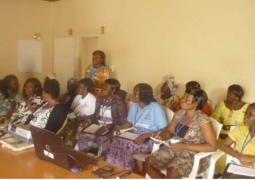For us, as the name implies, ‘Citizens Budget’ should be that kind of budget that involves people in decision-making processes – from resource allocation to spending.
So we welcome it for the fact that a budget is one of the most important documents in any country, apart from the constitution; so any initiative to make it reflect the needs of the citizens or the masses is welcomed.
We however welcome this new initiative cautiously and with some questions.
What difference has it from the previous one? Was the previous one not taking the needs of the citizens into consideration? How involved were the citizens in the process of its development?
It is said the Citizens Budget is a replica of the estimates of revenue and expenditure for 2014.For us, the new budget is just a change of nomenclature; it is just a matter of calling it another name, but the contents always reflect what obtains in the economy.
We know that Egypt also recently launched a citizens’ budget. As part of efforts at making the budget answer to its name, the Egyptian government has tried to get the budget available on a new website and distributed in public places such as universities, schools, and social clubs.
In Egypt just like in Gambia, the citizens budget system has been introduced to make sure citizens are in a better position to determine if their needs and interests are adequately catered for.
Now for us to be in that position, The Gambia government should make the new budget more accessible to the people by publishing it online and at major learning institutions and social clubs, as Egypt did.
Whether citizens’ or not, a national budget must reflect the needs of the citizens, as it is implemented on their behalf.
The new system is hoped to ensure more financial accountability of the government to its citizens.
We are however cautious about the whole issue, because we were made to understand that ‘very few’ countries in the world have adopted the full citizens’ budget process as recommended by the IMF.
Why ‘very few’ countries have so far adopted this system?Who are these very few countries?Do we have a similar economy with them?Why are the majority not going by the citizens’ concept - could it be because their budgeting system is already citizens-oriented?
Must we wholeheartedly embrace anything recommended by the IMF?It is also very essential to take into consideration our local situation and reality?
While we welcome the new initiative, more information should also be provided to sink it down to the masses of our people, as this is the first time The Gambia is introducing such a system.
“The budget is not just a collection of numbers, but an expression of our values and aspirations.”
Jacob Lew




